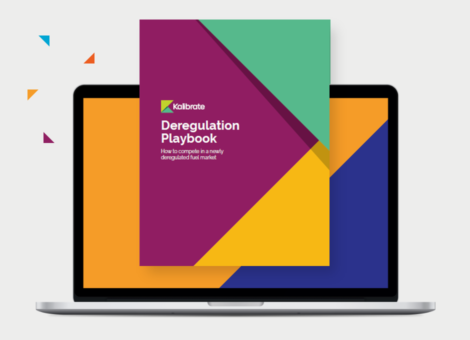Avoid disruption in a deregulating market ― four tips
A fuel pricing market’s move towards deregulation (such as Mexico’s in 2016), often signifies a transition from stability to instability.
Deregulation can occur for a variety of reasons, but very often emerging markets begin the process due to political or economic pressures. The speed and degree to which deregulation is enacted will shift based on these pressures as well.
In a newly deregulated market, fuel price becomes highly sensitive. In Mexico, the deregulation of fuel prices aimed to allow the incursion of various gas and fuel suppliers and sellers. The state company Pemex previously controlled the market, and post-deregulation, the plan was to allow free competition between brands and offer versatility to consumers.
But as a result, international brands were quick to seize the opportunity to implant their brand into the market, offering differentiated fuels and services. Local retailers have had to be incredibly nimble, and make the most of their local knowledge to grow their presence in the face of well-known brands such as BP and Repsol.
Here are four tips to avoid disruption in a deregulating market:
1. Don’t wait. Plan ahead
Whether you’re a major fuel brand with a large presence across different markets, or a small-scale retailer that operates locally, do not underestimate the value of planning ahead.
For example, have you checked if your IT systems need upgrading or replacing to accommodate a more nimble pricing strategy? Can you calculate your fuel costs station-by-station, to establish margin?
Also, be aware of your position in the market and plan accordingly. You could be at the mercy of a larger player’s actions, or you could cause widespread disruption inadvertently.
2. Streamline your operational processes
Your IT systems and technologies aren’t the only consideration in a deregulating market. Have you assessed your operational processes, to ensure you’re agile enough to deal with any market instability?
It’s a good idea to put together a cross-disciplinary team to ensure all departments are appropriately involved in deregulation. This will make sure all processes are defined, with clear roles and responsibilities. New processes must be designed to manage deregulated prices. Ensure you get full sign-off and approval on all processes prior to deregulation.
It’s a good idea to speak to your suppliers early to understand how deregulation will impact the way you are charged for fuel. If you’re using manual pricing processes, ensure you have the manpower to support it.
3. Outline a strategy, no matter your size or experience
No matter how well-established your business is in the market, you could be subject to volatility and unexpected challenges. It’s important for all fuel retailers to outline a clear strategy to guide the first few days and weeks of deregulation, and beyond.
Firstly, ensure that any new pricing strategies align with your global approach. Consider the strategic objectives of your organization and plan accordingly.
Secondly, although pricing is critical in a deregulated market, remember there are six other elements to consider. For example, who are you competing against? Consider their strengths and weaknesses, and assess how you compare. These considerations will help guide your strategic planning and ensure disruption is minimized.
4. Communicate, communicate, communicate
There’s no point in devising a thorough strategy, and preparing all your systems and processes for deregulation day if you’re not communicating these plans to the wider business.
If you’re big enough to have one, ensure that your customer service teams are well briefed ahead of time with FAQs ready to go. Remember that deregulation can be confusing to customers, so you may receive more calls than usual.
Finally, consider preparing a “deregulation pack” and having it ready to circulate to your site staff with all new procedures, communication on any changes, and FAQs for customers.
_ _ _ _
If you’re operating in a market that is discussing potential deregulation, in the process of deregulating, or is newly deregulated, take a look at Kalibrate’s Deregulation Playbook. It’s a personalized, interactive report designed to guide fuel retailers through necessary strategic steps in the deregulation process, based on specific business size and market experience.
Read more articles about:
Location intelligenceSubscribe and get the latest updates
You may unsubscribe from our mailing list at any time. To understand how and why we process your data, please see our Privacy & Cookies Policy
Related resources
Location intelligence
Download the Deregulation Playbook
In this ebook, you will learn how to compete in a newly deregulated fuel market, whether you’re a large or small...

Location intelligence
Seizing opportunities: How and why deregulated markets differ
In order to be prepared, fuel retailers need to understand how and why their market is deregulating. Here we assess...

